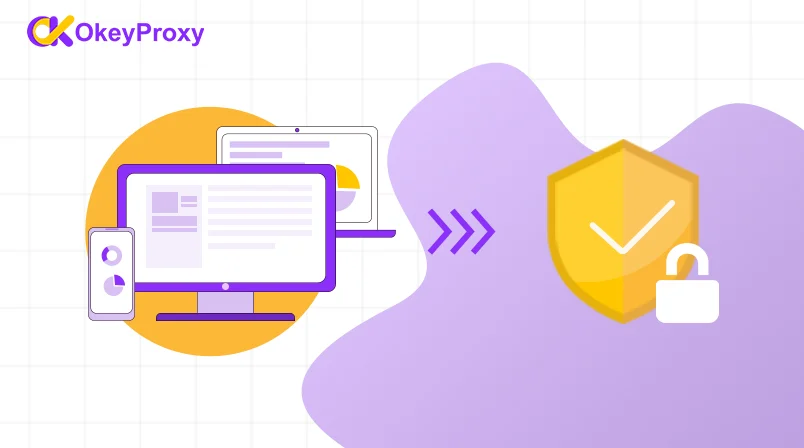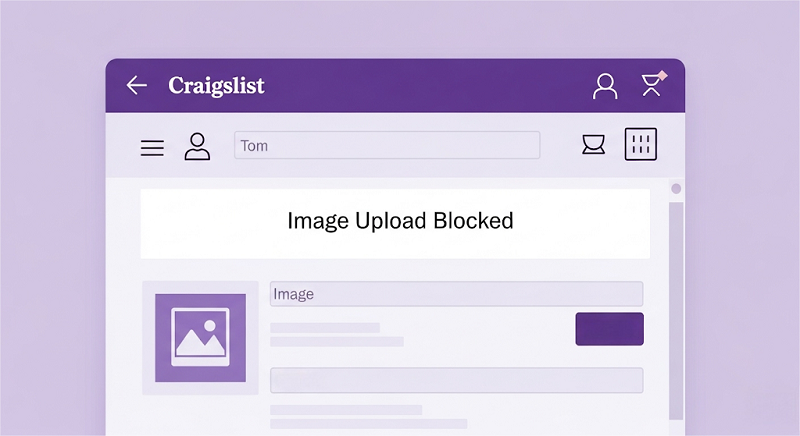What are the types of IP proxies

Online proxy, HTTP proxy, socks4/5 proxy, dedicated proxy, shared proxy, private proxy, anonymous proxy, elite proxy, reverse proxy... are you confused? Read this article to keep you informed.
Think of a proxy as a middleman between you and the Web server where the desired website resides. It receives your request and then sends it to the web server. The web server then processes the request and sends the requested information back to the proxy server, which then sends the requested data back to you.
This is similar to how you seek out friends to ask someone a question and then let you know the answer. Using this simple concept, countless proxy servers have been invented for a variety of purposes. If you are not familiar with proxies, these can easily confuse you. So we discuss these different types and their usage in this article.
proxies can be classified into several types based on different criteria. In our discussion, we will discuss various proxies based on protocols, anonymity, usage methods, request modifications, sharing, server types, and so on.
Different Types of Proxies Due to Protocols
HTTP proxy, HTTPS proxy, and SOCKS proxy
The SOCKS proxy can be HTTP, HTTPS, and SOCKS according to the protocol used by the proxy server.
HTTP Proxy
An HTTP proxy is any proxy server that connects to a Web server or client (browser) using the Hypertext Transfer Protocol (HTTP). Because of the widespread use of HTTP over the Internet, most proxies are HTTP proxies.
These proxies can access the web pages you browse on the Internet. Although they can also access websites using secure HTTP (HTTPS), the cost is losing the original SSL certificate in the process.
Because HTTP connections interpret data more easily than the SOCKS protocol, bots and scrapers perform better against HTTP proxies.
HTTPS Proxy and SSL Proxy
SSL (HTTPS) proxy: SSL or Secure Socket Layer is an additional layer of security imposed on HTTP to make it HTTPS. This layer adds security certificates for end-to-end encryption to prevent eavesdropping during data transmission.
An SSL-equipped proxy server establishes a secure connection to both the client and the Web server to avoid any outside interference. HTTPS proxies help you stay secure when making transactions or logging into websites with a username and password.
SOCKS Proxy
The SOCKS proxy creates TCP connections on behalf of the client to route traffic. This is a way to tunnel through a firewall so that even the proxy server cannot intercept data, so the socks proxy supports more applications. Thus, the SOCKS proxy is much more secure than the HTTP proxy.
However, the SOCKS5 proxy adds more advanced security features to secure the connection. The only downside is that some robots do not support SOCKS proxies, so you need to determine if your robot supports SOCKS proxies.
Different types of proxies based on anonymity levels
Transparent proxy, anonymous proxy, and elite anonymous proxy
Transparent proxy
Transparent proxies are also known as interception proxies, inline proxies, or coercive proxies. These proxies do not modify the data of the request or response, so there is no anonymity involved and the website can read your IP address. Transparent proxies are typically found in public Wi-Fi hotspots and are granted only to those who have access. Many servers also use transparent proxies to cache content for fast delivery.
Anonymous proxy
The anonymous proxy modifies the HTTP header to replace your IP address with its IP address and adds additional forwarding commands to prevent the Web server from knowing your IP address. The website can recognize that the proxy server is bypassing the connection, but does not know your initial IP. These types of proxies provide minimal anonymity and can be proxies for any protocol.
Elite anonymous agency
Elite anonymous proxies are similar to anonymous proxies but are more secure because they provide the highest level of anonymity in the proxy. The proxy server modifies the HTTP header to completely remove any of your information and does not add any forward commands. In this way, the website does not recognize the connection request from the proxy server and treats it as any regular connection.
Elite Anonymous proxies are essential if you use sneakers or scraping bots to prevent the web server from knowing you are using proxies and banning IP.
Type of proxy based on IP source
Depending on the source of the proxy, it can be a data center proxy or a residential proxy.
Residential proxies and data center proxies
DataCenter proxy
These proxies are generated in servers that specialize in handling proxies. The server is specially configured with high bandwidth connections and dedicated software to maximize performance. This allows the proxy to have faster speeds, lower pings, and possibly excellent anonymity. Datacenter proxies are suitable for most business purposes, especially robotics.
However, because this requires sellers to have a data center at each location where they want to provide IP addresses, there is usually much less location diversity for data center proxies. Sellers also have a limited number of proxies, about a few thousand. So a ticketing or sneaker proxy can easily find the data center proxy you are using now, making it easy to block with similar subnets.
Residential proxy
Residential proxies are IP addresses used by real people in their homes and provided by actual ISPs. Sellers of residential proxies do not own the proxies, but simply "rent" them in exchange for services such as residential VPNS.
As a result, the seller can have a large number of residential proxies around the world. These proxies are slower than datacenter proxies, but in large quantity, they are suitable for many enterprises. Learn more about residential IP proxies here.
Different Types of Proxies Based on Usage Methods
It will classify Open proxy, closed proxy, network proxy, and CGI network proxy
Public Proxy
A public proxy is a publicly available proxy that does not require any authentication methods at configuration time. But because these proxies are free and publicly available, most of the time these proxies are defunct or insecure because hackers can set them up to steal information.
Open proxies are also known as public proxies and are therefore almost free, and we do not recommend that you use these free public proxies, for reasons that will be explained in a future article that will not be explored here.
Closed proxy (private proxy)
Closed proxies are proxies protected with different authentication techniques that prevent the unauthorized use of any proxy by unauthorized persons. Closed-end proxies can be purchased online from numerous vendors. Closed proxies can be divided into two types based on the number of people shared between proxies.
Special purpose proxy
Private proxies are also called private proxies because these proxies are assigned only to you, so access proxies are private to you. Dedicated proxies provide higher performance and security but at a higher cost than shared proxies. proxy packages dedicated to ticketing, grabbing, and sneaker handling are almost always proprietary proxies because they require high performance, and sharing proxies with others increases the likelihood of being banned.
These proxies are shared between two to five users. Each user can have concurrent connections to the same IP address, so the bandwidth usage is evenly distributed among users. The downside of using shared proxies is that the bandwidth speed they provide is greatly reduced due to sharing, and proxies can be banned due to improper use by other users. However, the cost of a shared proxy is usually much lower than that of a private proxy, and see why here.
This type of proxy is also a closed proxy because only a few users can use it. 90% of the rotating proxy providers share their proxy network with the users, maintaining fast network connections through scientific allocation, and some providers also offer proprietary rotating proxies, which means that only one user is using the proxy at a time.
Web Proxy Server
A Web proxy is a proxy server deployed on a website. They do not need to be configured on the desired application, such as a browser or a robot, to be used typically. This type of proxy is like a website that can block your IP address.
CGI Web proxy
These proxies are run by a Web interface on the site called the Common Gateway Interface. You can enter the required URL to access the page from the proxy site itself. Thousands of Web proxy sites use only a handful of CGI Web proxies.
All the data you enter while using these proxies will be bypassed by the host website, and they can easily read your data if needed. Therefore, security information should not be entered into these proxies. These proxies cannot yet be configured to be configured in software, making them unsuitable for most business tasks.
proxy type based on proxy duration
Static IP proxy and rotating IP proxy
Non-rotating or static IP proxy
Most data center proxy providers allocate a certain number of proxies to their users, and the more proxies, the higher the price. These proxies are only assigned to specific users, and users can use the proxies in a rotational manner using a rover or plug-in.
If the proxy is prohibited, then the seller usually provides a proxy replacement once a month. Otherwise, users can only use the same proxy all the time.
Rotate or reverse-connect the proxy
A backconnect proxy is also called a spin proxy because the proxy automatically changes and is replaced by a new proxy after a certain time. This allows you to issue each request with a new IP address, with better anonymity and speed, and avoid bot restrictions.
Backconnection proxies are great for fetching. Backconnect proxies are mostly found in residential proxies because of the large number of proxies to rotate, but some data center proxy providers are experimenting with rotating datacenter proxies.
Proxy type based on data modification
Forward proxy and reverse proxy
Forward proxy
A forward proxy is a regular proxy used to access Web content anonymously. Clients (browsers) use this type of proxy to remain anonymous. The forward proxy takes the data request from the client, forwards the request to the Web server for processing, and then forwards the response from the Web server to the client again. In fact, all of the proxy types we discussed above are forward proxies.
Reverse proxy
A reverse proxy typically sits on the Web server side to control traffic to the server, authenticate or decrypt connection requests, or just cache content to speed delivery. Ordinary people do not use reverse proxies to gain anonymity. Instead, it helps protect your Web server from attacks. Reverse proxies can also distribute traffic to different servers to balance the load.
Proxy types based on IP reuse
Unused or original proxy
A proxy that has not been used before is called an original or unused proxy. In most cases, the original proxies are not entirely fresh, but they have not yet been used for the specific sites assigned in your package. This is why many sellers block access to websites for anything other than their intended use.
A proxy for use or resale
Although not explicitly mentioned, most proxies have been used in some way before. Since the site lifts the ban on proxies after a certain time, it is perfectly fine to use the previously used proxies after that time is up.
conclusion
In this paper, proxies are classified and introduced based on different types of protocols, different anonymity levels, IP sources, different usage methods, proxy duration, data modification, and IP reuse. As long as you read the complete text, you will have a clear understanding.






















